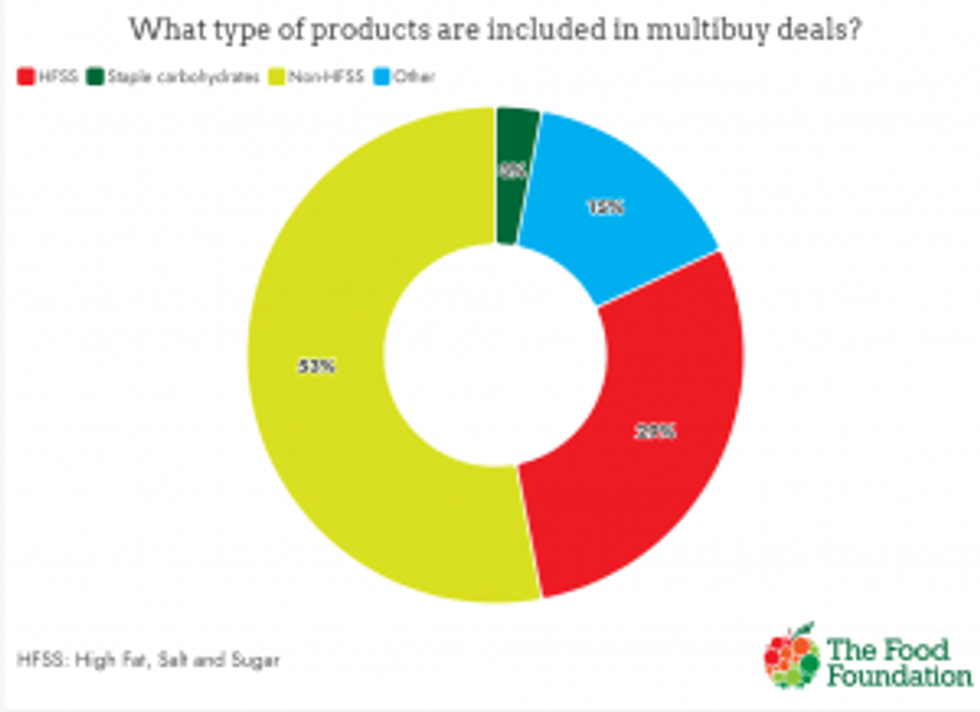New data released today shows that just three per cent of volume promotions or multibuys available in supermarkets are on staple carbohydrates, 3.8 per cent on fruit and vegetables and one per cent on milk. Just one promotion was found on eggs – a packaged snacking option rather than a carton of eggs intended for everyday use. This comes as the Food Foundation publishes its latest round of national food insecurity data which shows 17 per cent of households are struggling to put food on the table.
Earlier this year, the government delayed restrictions to multibuys or “buy one get one free” (BOGOF) deals on foods high in salt, sugar and fat (HFSS), arguing that families would need access to these price reductions during the cost of living crisis. This new data shows that in fact the foods which families really need to be on discount during the cost-of-living crisis are not subject to multi-buys – instead, almost a third (29 per cent) of are on high fat, salt and sugar products (HFSS).
Much like advertising spend in the UK, where a third (33 per cent) of food and soft drink advertising spend goes towards confectionery, snacks, desserts and soft drinks compared to just one per cent for fruit and vegetables, this analysis shows that action needs to be taken to rebalance marketing and promotional spend to ensure that healthy foods like fruit and veg are better promoted to customers.
In the non-HFSS multibuy category, a wide range of foods were available, including marinades, sauces, spices and herbs, kitchen ingredients and composite foods such as ready meals. The category “Other” includes those products where nutrient information is missing online, which makes it difficult to calculate an accurate NPM score and determine whether the product is HFSS or not.
The Food Foundation data published today highlights that offering promotions could be a useful tool for supporting consumers to stretch their food budget further when promotions are on essential items. But unless such promotions are structured so that they help citizens to afford healthier staple foods - rather than discretionary foods high in salt, sugar and fat - multibuy offers will only further obstruct the shift towards making healthier diets the easier, more affordable option.
“Levels of food insecurity remain worryingly high, with 17 per cent of households experiencing food insecurity in June 2023,” said Anna Taylor, Executive Director of The Food Foundation. “Running promotional deals on junk food simply makes it even harder for many to access and afford nutritious food.”
Katharine Jenner, Director of the Obesity Health Alliance, added: “Supermarkets should put healthier foods on special offers, ones that are on people’s shopping lists and that don’t hurt their health, for a healthier Britain.”






